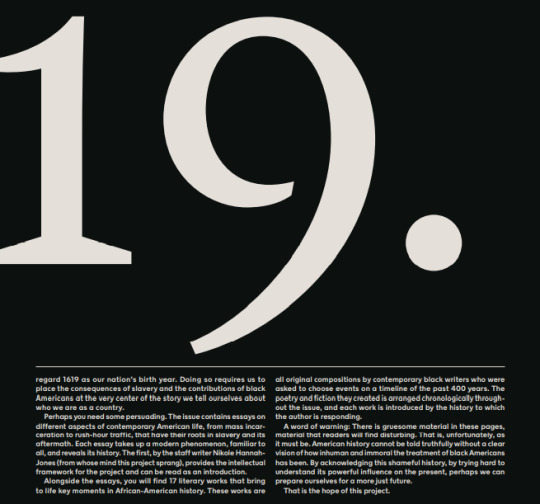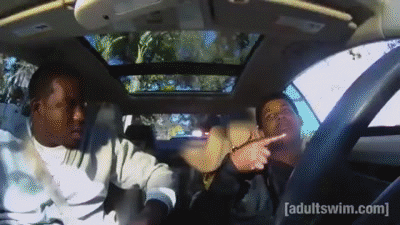Text
Artifact #3
Dear Future Tumblr User,
Welcome! I suppose that it’s safe to say that you’ve moved on from other social media platforms *cough*TwitterandTikTok*cough*. If not, no worries! We at Tumblr just want to make sure that we keep the community close and safe—and that we hold supremacy for the most logical content #gaslightgatekeepgirlboss. Enough with the introductions—I’m sure that you might’ve heard about us if you’re into anything and everything that has to do with fandoms and online activism. Around 2014, we were pretty known for social justice and our online activism. We still are! The #Black Lives Matter tag has been in the number one trending spot for over a year; #stop asian hate has recently joined the trending tags ranking as number two. So, if you’re interested in any online activism, or even following social movements like feminism, LGBTQ+, and animal rights ones, then this is the right social media platform for you. I haven’t even started on fandoms.
Tumblr is pretty much known for popularizing certain fandoms (aka keeping the cause alive!) like SuperWhoLock, Homestuck, Onceler, and Steven Universe enthusiasts. Because we accept all kinds of media, e.g. gifs, images, videos, & late-night fanfiction creations, you’ll come across all sorts of content here! We tend to use a lot of media that we collect in specific folders on our laptops to express how we feel inside because using words is nerve-wrecking. But, don’t let that get to you. Instead, accept this cheerful gif of a random anime girl:

If you’ve heard about linguistic profiling, you might be interested in learning about Tumblr-user profiling! No worries, no discrimination here; we don’t deny access to any goods unlike some people<3😊(Baugh, 2019). These types are usually quiet (but not in groups with those of similar interests), quirky, and into very specific styles of media like: cottagecore, Japanese Lolita fashion blogging, dissing Twitter/TikTok users because “all Tumblr users from the 2010s have all grown up now and are technically more mature than the kids who over-share on social media platforms,” furries, shipping wars, and vehemently trying to forget that one Supernatural Destiel post that their mutual has blogged. But, we tend to out ourselves with obscure references from the platform itself. If you can't "catch us"...we'll probably do it ourselves🤡.
All in all, we wish you good luck with your journey of spending countless nights scrolling through your blog feed to satisfy your craving for entertainment before the mercy of sleep takes you under her wings.
Thoughts & Prayers 😘
References
Baugh, J. (2019). The Significance of Linguistic Profiling: TEDTalk [video] Youtube. https://www.youtube.com/watch?v=GjFtIg-nLAA.
0 notes
Text
My experience with LAI537
Hello everyone!
This class introduced to me to the idea of Black English/African-American Language (and its other titles) as being a language rather than a dialect—so, I really appreciate it! It has inspired me greatly, especially with other projects happening in the United States like the 1619 Project from New York Times.
Here is page 5 from the magazine issue:

Also, I am really into the language exploration/observation assignments that we have been doing in class, because they can be adopted into projects for secondary school ELA students (which I find really useful/interesting as a pre-service ELA teacher). I think it's cool that I have these artifacts that I can reference—the videos and other posts that I have made for the Language Exploration assignments.
Photo/link to my latest Language Exploration assignment (#3):

YouTube: https://youtu.be/ksiPIYRKxII
This course has worked really well with the other courses that I am taking right now such as: ENG581: African-American Literature & LAI536: Digital Video/Literacy Learning. Because we're experiencing online education through the Covid-19 pandemic, it really helps to be able to learn how to use digital tools for instructional purposes and how media can be utilized to bolster a lesson plan/unit.

I'm pretty sure that I am going to use April Baker-Bell's Linguistic Justice: Black language, literacy, identity, and pedagogy as a teacher, if I am to become one. I want to teach about topics such as the history/use of the Black Language/African-American Language as I really enjoy the works of African-American writers!
For example, I would really like to do a language observation project with students, I think that would be totally neat. Baker-Bell's (2020) two sections "Language in your Everyday" & "Language, Identity, Power and Culture Activity" are really helpful to have as references in case I would like to conduct such a project.
This course has also taught me about linguistic justice in general and more things regarding language in the everyday such as linguistic-profiling. John Baugh's (2019) that we saw during week 10/11 entitled "The Significance of Linguistic Profioling" is something that I still think about in regards to myself as an individual and as to why it is still important to think about the benefits that the majority in the United States has versus people of minorities.
Overall, this course has enabled me to talk more freely about language in the U.S. and I am really happy for it!
References
Baker-Bell, A. (2020). Linguistic justice : Black language, literacy, identity, and pedagogy. NCTE.
Baugh, J. (2019). The Significance of Linguistic Profiling: TEDTalk [video] Youtube. https://www.youtube.com/watch?v=GjFtIg-nLAA.
0 notes
Text
Hey guys,
I think, as students in Education, some us of were waiting for a video like John Baugh’s TED Talk “The Significance of Linguistic Profiling” because he acknowledges the use of people making assumptions about someone’s character based on his/her voice—in positive manners such as a baby in the womb learning his/her mother’s voice. Although, Baugh still makes the point of talking about linguistic profiling in which there is discrimination based on the language that a person uses. For example, the video that showed a man getting apartment offers rescinded because he put on a “non-white voice” over the phone, and then when he used a generic voice that is typical of a U.S. white male, the apartment offer was not taken away.
Right, I feel like this is nothing new of living in the U.S. We even have skits based about this sort of stuff—of having to adopt different personas to avoid discrimination:

So, this is my first time coming across the concept of “raciolingustic ideologies” which Nelson Flores and Jonathan Rosa both discuss in their article “Undoing Appropriateness: Raciolinguistic Ideologies and Language Diversity in Education.” This means that educators also have to be wary of how language is connected to race and what ideologies spur from it rather than just focusing on linguistic profiling—we’re not all going to talk to our students over the phone, right? Maybe just their parents? It’s bad enough that things are on Zoom and the other online platforms that districts/schools are sprinkling in with online learning—but we should probably take time to think about how this can relate to us.
Hopefully, *fingers crossed*, I’m not the only one who is thinking about assumptions that I have made, or thoughts that I have about certain characteristics of language being applicable to certain races—and minorities for that matter—when it comes to communicative interactions. Even if we don’t want to admit it, I’m positive that we’ve all thought “Oh, this person is probably [insert race or ethnicity] because of how the person is speaking.”
Right?

Right??
In his book: Black Linguistics: language, society, ad politics in Africa and the Americas, Baugh points out the societal expectations of accents and languages, which I find really interesting. In my experience, the "British accent" is praised because it is either "attractive" or "sounds intelleginent" but I am not sure if they have come across the Yorkshire accent/dialect (joke)—because that is, arguably, difficult to understand when it is thickly used. I am thinking about the societal standards of what "good English" is and what constitutes an "undesirable" accent in the U.S. (Baugh, 2003, p. 163)
Anyways, I am thinking back to the United States being a “country of immigrants” because the readings that we’ve done for the week have focused on multi-lingual students (which is great—especially since there has been an equal emphasis on Spanish speaking students). I’m still frustrated by how the construction of “academic language” has thrown pretty much all of the other languages used in the U.S. under the bus.

Yet, this research is doing well by stressing that the variations of languages in the U.S. should be validated (Flores & Rosa, 2015, p. 3). Also, that we should approach students who use different languages outside of the expected ones in classrooms in a manner that is an "additive approach" to where their use of home languages isn't put down in any manner or even "eliminated" (2015, p. 165). I thought that we were past the state of cultural destruction when it came to schools (looking at you, "Indian Residential Schools).
Thus, we should all have some sort of language tolerance when it comes to living and functioning in the U.S. We shouldn't really want that repeat of history.
Also, approaching these readings as someone who is interested in teaching has been further solidifying my idea that some of the problems that occur between white educators and non-white students lies at the basis of confusion (I don't want to put ignorance here, because of its strong negative connotation). Of course problems arise from lack of communication, this happens to me all the time (unfortunately) on a daily basis, but that is mainly because I consider myself socially awkward and I'm locked up in my room 24/7 staring at my laptop screen trying to gain some sense of reality with the lack of Spring Break and upcoming finals.

(accurate representation of me—but we all can't be winning.)
Furthermore, with the example that Flores & Rosa bring up about the Alim, a researcher, identifying an issue that the teacher had with African-American students with "vernacular English" is really interesting because it seems like the teacher was adamant about negatively perceiving the "vernacular English" used by the students instead of coming at it with an additive approach.
Maybe the teacher framed it as a you vs them moment? I.e. Vernacular English vs Academic Language? An additive approach could have had the teacher recognizing the differences, acknowledging them in a positive manner (oh! this contributes to the students' cultural backgrounds), made a neutral observation that emphasized that there needed to be a use of academic langauge in the classroom at that moment but vernacular english is also valid—instead of seemingly getting defensive and thus, going nowhere.
So, I think that there has to be an active validation of languages outside of the academic language that is used in school settings. I'm not suggesting any praises, but—acknowledging that there is a time and place for certain languages, e.g. academic language to make sure that students test well, while creating an environment that allows academic language and other languages to function side-by-side without "eliminating" a student's use of a language.
For lingustic justice, we have that suggestion that Baugh made in his TED Talk, for people of the "standard accent" in the U.S. to not put down any other accents that deviate from the mainstream. That perhaps, normalizing and validating the different accents will put a lot of work into minimizing linguistic profiling.
References:
Baugh, J. (2019). The Significance of Linguistic Profiling: TEDTalk [video] Youtube. https://www.youtube.com/watch?v=GjFtIg-nLAA.
Baugh, J. (2003). Black Linguistics: Language, Society, and Politics in Africa and the Americas. Routledge.
Rosa, J. & Flores, N. (2015). “Undoing Appropriateness: Raciolinguistic Ideologies and Language Diversity in Education.” Harvard Educational Review Vol. 85(2). Harvard Education Publishing Group.
1 note
·
View note